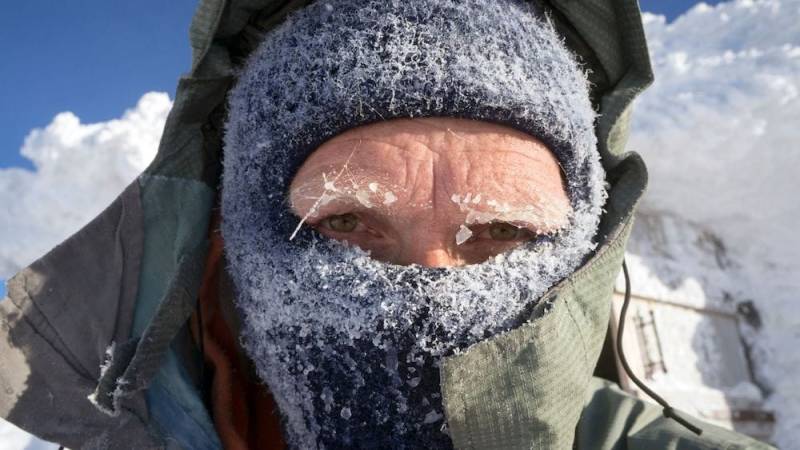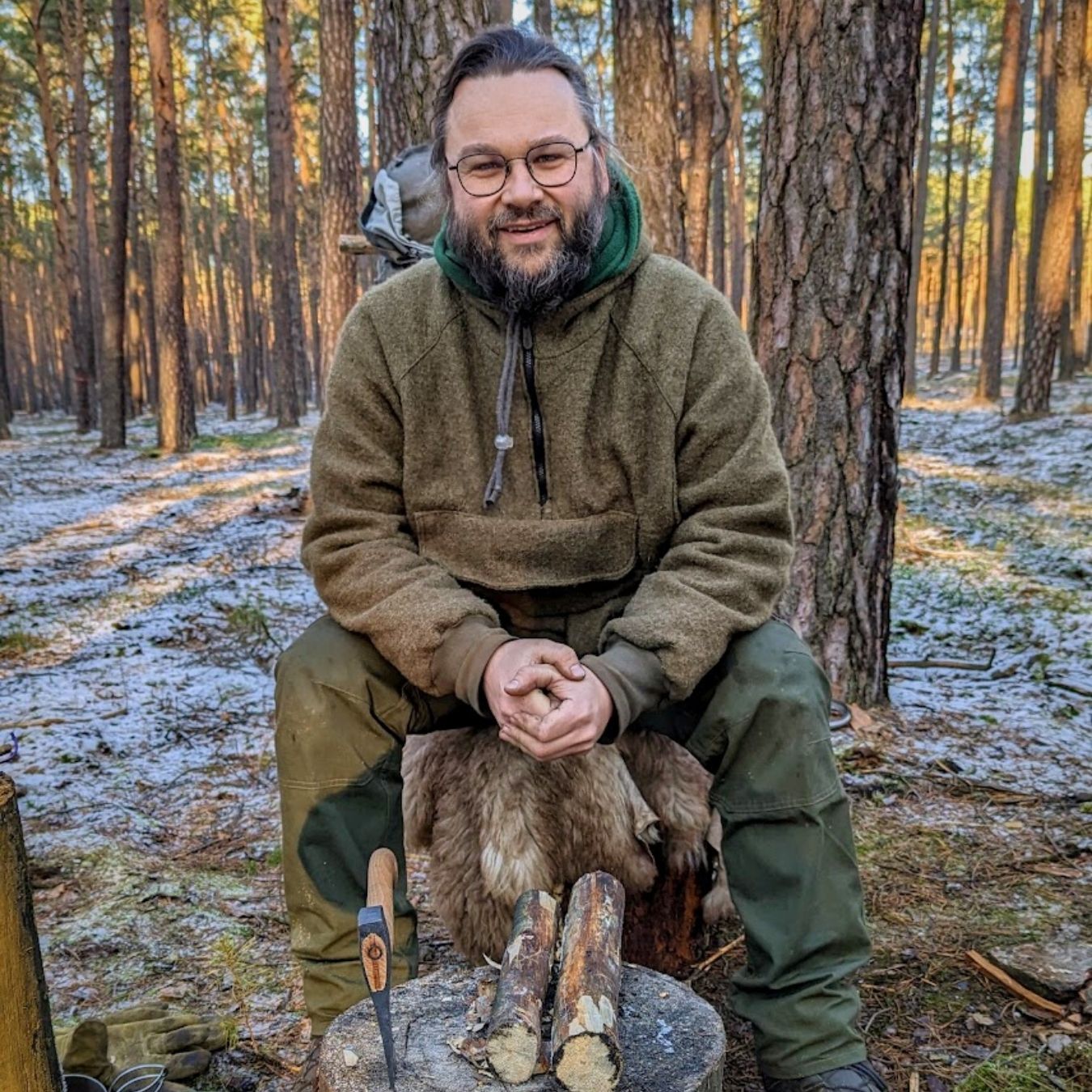
Hypothermia
Noun
Meaning
Hypothermia is a potentially life-threatening condition that occurs when the body loses heat faster than it can produce it, resulting in a dangerously low body temperature. In the context of survival, bushcraft, wilderness, camping, and hiking, hypothermia is a significant concern, especially in cold and wet environments. It is essential to understand the signs and symptoms of hypothermia, such as shivering, confusion, and loss of coordination, and to take immediate action to prevent further heat loss and rewarm the body. Proper clothing, shelter, and fire-making skills are crucial in preventing and treating hypothermia in outdoor activities.

Examples
„Hypothermia is a serious condition that occurs when your body loses heat faster than it can produce it. It can be life-threatening and requires immediate medical attention. Here are five examples of how the word "hypothermia" can be used in sentences: 1. While hiking in the mountains, it's important to dress in layers and stay dry to prevent hypothermia. 2. If you fall into icy water, hypothermia can set in quickly, so it's crucial to get out and warm up as soon as possible. 3. During a winter camping trip, make sure to insulate your sleeping bag properly to avoid the risk of hypothermia. 4. Hypothermia can occur even in mild temperatures if you're exposed to wet and windy conditions for an extended period. 5. When treating someone with hypothermia, it's essential to handle them gently and gradually warm them up to avoid shock.“
„Hypothermia is a serious condition that occurs when your body loses heat faster than it can produce it. It can be life-threatening and requires immediate medical attention. While hiking in the mountains, it's important to dress in layers and stay dry to prevent hypothermia. If you fall into icy water, hypothermia can set in quickly, so it's crucial to get out and warm up as soon as possible. During a winter camping trip, make sure to insulate your sleeping bag properly to avoid the risk of hypothermia. Hypothermia can occur even in mild temperatures if you're exposed to wet and windy conditions for an extended period. When treating someone with hypothermia, it's essential to handle them gently and gradually warm them up to avoid shock.“
Origin
Hypothermia is a word that originates from the Greek language. It is derived from the combination of two Greek words: "hypo," meaning under or below, and "thermos," meaning heat. The word "hypothermia" literally translates to "under heat" or "below normal body temperature."
The concept of hypothermia has been recognized for centuries, with references to its symptoms and effects found in ancient texts. However, it wasn't until the 19th century that the term "hypothermia" was officially coined and used to describe the condition.
Hypothermia occurs when the body loses heat faster than it can produce it, resulting in a dangerously low core body temperature. This can happen in extreme cold weather conditions, prolonged exposure to cold water, or in situations where the body's ability to regulate temperature is compromised.
Over the years, our understanding of hypothermia has evolved, and so has our approach to treating and preventing it. Today, hypothermia is a well-known medical emergency, and various techniques and strategies have been developed to manage and mitigate its effects.
Synonyms
Chill, Cold, Frostbite, Freezing, Frostnip, Exposure, Coldness, Low body temperature
Antonyms
Hyperthermia, Fever, Overheating, Heatstroke, Hyperpyrexia, Hyperthermy, Pyrexia, Hyperthermality
Relatives
Cold, Frostbite, Shivering, Body temperature, Winter, Exposure, Hypothermia symptoms, Survival
Historical and cultural importance
Hypothermia, also known as severe cold exposure, is a condition that occurs when the body loses heat faster than it can produce it, resulting in a dangerously low body temperature. This condition has a significant historical and cultural relevance, especially in the context of survival and outdoor activities.
In ancient times, hypothermia was a constant threat to those living in colder climates or engaging in long journeys through harsh environments. It played a crucial role in shaping survival strategies and techniques, as people had to learn how to protect themselves from extreme cold and prevent hypothermia.
Throughout history, hypothermia has been a common cause of death in various expeditions and military campaigns. It has been a constant challenge for explorers, mountaineers, and sailors, who have faced extreme cold temperatures and adverse weather conditions. Understanding the symptoms and treatment of hypothermia has been essential for survival in these situations.
In many cultures, hypothermia has also been associated with traditional practices and rituals. For example, in Scandinavian countries, the tradition of sauna bathing followed by a plunge into icy water is believed to have health benefits and strengthen the body's resistance to cold. This cultural significance highlights the long-standing awareness of the dangers and effects of extreme cold on the human body.
Today, hypothermia remains a significant concern for outdoor enthusiasts, hikers, and adventurers. Knowing how to prevent, recognize, and treat hypothermia is crucial for anyone venturing into cold environments. It is a topic extensively covered in survival training, wilderness medicine, and outdoor education.
Overall, the historical and cultural relevance of hypothermia underscores the importance of understanding this condition in the context of survival and outdoor activities. It serves as a reminder of the challenges posed by extreme cold and the need for preparedness and knowledge to ensure one's safety in such environments.
More information about the term Hypothermia
What is Hypothermia?
Hypothermia is a potentially life-threatening condition that occurs when your body loses heat faster than it can produce it, resulting in a dangerously low body temperature. It is commonly associated with exposure to cold temperatures, but can also occur in mild weather conditions if the body is wet or not properly insulated.
Symptoms of Hypothermia
The symptoms of hypothermia can vary depending on the severity of the condition. In mild cases, you may experience shivering, numbness, and cold skin. As the condition worsens, symptoms can include confusion, drowsiness, slurred speech, and difficulty moving. Severe hypothermia can lead to loss of consciousness, shallow breathing, and even cardiac arrest.
Preventing Hypothermia
Preventing hypothermia is crucial, especially when venturing into the wilderness or engaging in outdoor activities. Here are some tips to help you stay warm:
- Dress in layers: Layering your clothing allows you to adjust your insulation according to the weather conditions.
- Stay dry: Moisture can accelerate heat loss, so it's important to keep your body and clothing as dry as possible.
- Wear a hat and gloves: A significant amount of body heat is lost through the head and hands, so wearing a hat and gloves can help retain heat.
- Seek shelter: If you find yourself in a cold and windy environment, seek shelter to protect yourself from the elements.
- Stay hydrated and nourished: Proper hydration and nutrition are essential for maintaining body temperature.
Treating Hypothermia
If you or someone you're with is experiencing symptoms of hypothermia, it's important to take immediate action:
- Move to a warm and dry location.
- Remove any wet clothing and replace it with dry layers.
- Wrap the person in blankets or use a sleeping bag to provide insulation.
- Offer warm fluids, but avoid alcohol or caffeine.
- Seek medical attention as soon as possible.
Conclusion
Hypothermia is a serious condition that can have life-threatening consequences. By understanding the symptoms, taking preventive measures, and knowing how to treat it, you can minimize the risk of hypothermia and enjoy your outdoor adventures safely.
Back to overview

